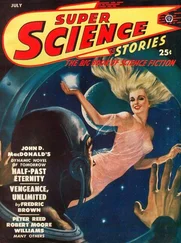Джон Макдональд - Flaw
Здесь есть возможность читать онлайн «Джон Макдональд - Flaw» весь текст электронной книги совершенно бесплатно (целиком полную версию без сокращений). В некоторых случаях можно слушать аудио, скачать через торрент в формате fb2 и присутствует краткое содержание. Жанр: Фантастика и фэнтези, на английском языке. Описание произведения, (предисловие) а так же отзывы посетителей доступны на портале библиотеки ЛибКат.
- Название:Flaw
- Автор:
- Жанр:
- Год:неизвестен
- ISBN:нет данных
- Рейтинг книги:5 / 5. Голосов: 1
-
Избранное:Добавить в избранное
- Отзывы:
-
Ваша оценка:
- 100
- 1
- 2
- 3
- 4
- 5
Flaw: краткое содержание, описание и аннотация
Предлагаем к чтению аннотацию, описание, краткое содержание или предисловие (зависит от того, что написал сам автор книги «Flaw»). Если вы не нашли необходимую информацию о книге — напишите в комментариях, мы постараемся отыскать её.
Flaw — читать онлайн бесплатно полную книгу (весь текст) целиком
Ниже представлен текст книги, разбитый по страницам. Система сохранения места последней прочитанной страницы, позволяет с удобством читать онлайн бесплатно книгу «Flaw», без необходимости каждый раз заново искать на чём Вы остановились. Поставьте закладку, и сможете в любой момент перейти на страницу, на которой закончили чтение.
Интервал:
Закладка:
John D. MacDonald
Flaw
(1916-)Startling Stories, January
John D. MacDonald returns (see his two excellent stories in our 1948 volume) with this interesting and unusual piece of speculative fiction. MacDonald was tremendously prolific in the late 1940s, working in almost every genre that still had magazine markets available, in what was the twilight of the pulp era. He got published because he was a wonderful storyteller, but also because he developed an excellent work-ing knowledge of genres and their conventions. However, like all great writers, he could successfully defy genre conventions and get away with it, as in this story, which is blatantly pessimistic and questions the very possibility of going to the stars — an attitude and point of view that most late 1940s science fiction writers and their readers certainly did not share.—M.H.G.
(Science fiction can be at its most amusing [and most useful, perhaps] when it challenges our assumptions. And that is true of straightforward scientific speculation, also.
Even when the challenge is doomed to failure [and in my opinion the one in this story is so doomed] or when scientific advance actually demonstrates, within a few years, the chal-lenge to be doomed, the story is likely to remain interesting. — Thus, I once wrote a story in which I speculated that the Moon was only a false front and that on the other side were merely wooden supports. Within a few years the other side of the Moon was photographed and our satellite proved not to be a false front after all. But who cares? Anyone who reads the story is not likely to forget the speculation.
Read “Flaw,” then, and ask yourself: With the rockets and probes of the last three decades, has the thesis of this story yet been demonstrated to be false? If so, how?—I.A.)
* * * *
I rather imagine that I am quite mad. Nothing spectacular, you understand.
Nothing calling for restraint, or shock therapy. I can live on, dangerous to no one but myself.
This beach house at La Jolla is comfortable. At night I sit on the rocks and watch the distant stars and think of Johnny. He probably wouldn’t like the way I look now. My fingernails are cracked and broken and there are streaks of gray in my blonde hair. I no longer use makeup. Last night I looked at myself in the mirror and my eyes were dead.
It was then that I decided that it might help me to write all this down. I have no idea what I’ll do with it.
You see, I shared Johnny’s dreams.
And now I know that those dreams are no longer possible. I wonder if he learned how impossible they were in the few seconds before his flaming death.
There have always been people like Johnny and me. For a thousand years mankind has looked at the stars and thought of reaching them. The stars were to be the new frontier, the new worlds on which mankind could expand and find the full promise of the human soul.
I never thought much about it until I met Johnny. Five years ago. My name is Carol Adlar. At that time I was a government clerk working in the offices at the rocket station in Arizona. It was 1959. The year before the atomic drive was perfected.
Johnny Pritchard. I figured him out, I thought. A good-looking boy with dark hair and a careless grin and a swagger. That’s all I saw in the beginning. The hot sun blazed down on the rocks and the evenings were cool and clear.
There were a lot of boys like Johnny at the rocket stationtransferred from Air Corps work. Volunteers. You couldn’t order a man off the surface of the earth in a rocket.
The heart is ever cautious. Johnny Pritchard began to hang around my desk, a warm look in his eyes. I was as cool as I could be. You don’t give your heart to a man who soars up at the tip of a comet plume. But I did.
I told myself that I would go out with him one evening and I would be so cool to him that it would cure him and he would stop bothering me. I expected him to drive me to the city in his little car. Instead we drove only five miles from the compound, parked on the brow of a hill looking across the moon-silvered rock and sand.
* * * *
At first I was defensive, until I found that all he wanted to do was talk. He talked about the stars. He talked in a low voice that was somehow tense with his visions. I found out that first evening that he wasn’t like the others.
He wasn’t merely one of those young men with perfect coordination and high courage. Johnny had in him the blood of pioneers. And his frontier was the stars.
“You see, Carol,” he said, “I didn’t know a darn thing about the upstairs at the time of my transfer. I guess I don’t know much right now.
Less, probably than the youngest astronomer or physicist on the base. But I’m learning. I spend every minute I can spare studying about it. Carol, I’m going upstairs some day. Right out into space. And I want to know about it.
I want to know all about it.
“We’ve made a pretty general mess of this planet. I sort of figure that the powers-that-be planned it that way. They said, ‘We’ll give this puny little fella called man a chance to mess up one planet and mess it up good. But we’ll let him slowly learn how to travel to another. Then, by the time he can migrate, he will be smart enough to turn the next planet into the sort of a deal we wanted him to have in the beginning. A happy world with no wars, no disease, no starvation.’ “
I should have said something flip at that point, but the words weren’t in me. Like a fool, I asked him questions about the galaxies, about the distant stars. We drove slowly back. The next day he loaned me two of his books.
Within a week I had caught his fervor, his sense of dedication.
After that it was, of course, too late.
All persons in love have dreams. This was ours. Johnny would be at the controls of one of the first interplanetary rockets. He would return to me and then we would become one of the first couples to become colonists for the new world.
Silly, wasn’t it?
He told me of the problems that would be solved with that first interplanetary flight. They would take instruments far enough out into space so that triangulation could solve that tiresome bicker-ing among the physicists and astronomers about the theory of the exploding universe as against the theory of “tired light” from the distant galaxies.
And now I am the only person in the world who can solve that problem. Oh, the others will find the answer soon enough. And then they, too, can go quietly mad.
They will find out that for years they have been in the position of the man at the table with his fingers almost touching the sugar bowl and who asks why there isn’t any sugar on the table.
That year was the most perfect year of my life.
“When are you going to marry me, Johnny?” I asked him.
“This is so sudden,” he said, laughing. Then he sobered. “Just as soon as I come back from the first one, honey. It isn’t fair any other way.
Don’t you see?”
I saw with my mind, but not with my heart. We exchanged rings. All very sentimental. He gave me a diamond and I gave him my father’s ring, the one that was sent home to my mother and me when Dad was killed in Burma in World War II. It fit him and he liked it. It was a star ruby in a heavy silver setting. The star was perfect, but by looking closely into the stone you could see the flaws. Two dark little dots and a tiny curved line which together gave the look of a small and smiling face.
With his arm around me, with the cool night air of Arizona touching our faces, we looked up at the sky and talked of the home we would make millions of miles away.
Childish, wasn’t it?
Last night after looking in the mirror, I walked down to the rocks. The Government money was given to me when Johnny didn’t come back. It is enough. It will last until I die and I hope it will not be too long before I die.
Читать дальшеИнтервал:
Закладка:
Похожие книги на «Flaw»
Представляем Вашему вниманию похожие книги на «Flaw» списком для выбора. Мы отобрали схожую по названию и смыслу литературу в надежде предоставить читателям больше вариантов отыскать новые, интересные, ещё непрочитанные произведения.
Обсуждение, отзывы о книге «Flaw» и просто собственные мнения читателей. Оставьте ваши комментарии, напишите, что Вы думаете о произведении, его смысле или главных героях. Укажите что конкретно понравилось, а что нет, и почему Вы так считаете.

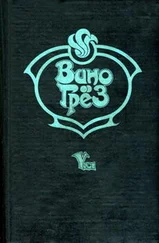
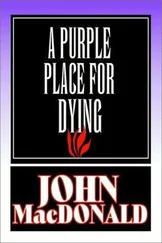
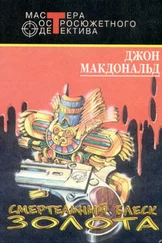
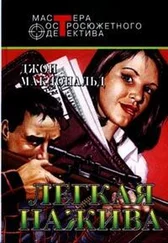
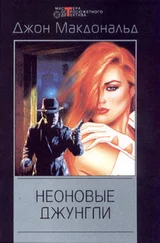
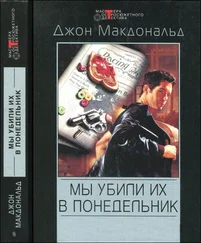
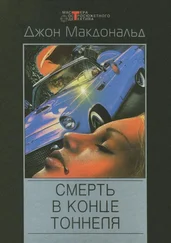
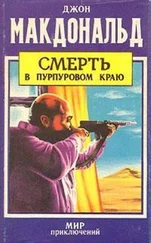
![Джон Макдональд - Wine of the Dreamers [= Planet of the Dreamers]](/books/430039/dzhon-makdonald-wine-of-the-dreamers-planet-of-thumb.webp)

